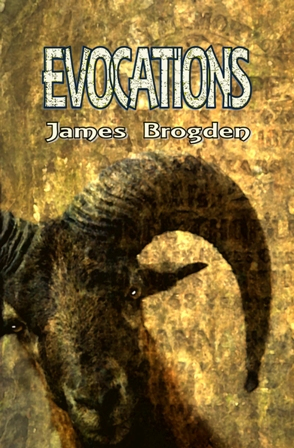
The Smith of Hockley

‘The Smith of Hockley’ by James Brogden
The Midas Scorpion was an assassin’s tool of the Elder World, from a time long before there were distinctions between magic and machine, or life and art, or death and love. It was made of gold, finely articulated, with a single bead of poison still on the tip of its sting and its ruby eyes still glittering with mindless evil, even though it lay dead and flayed open on John Whelan’s work desk. The haphazard scattering of its eviscerated remains testified to his last moments of panic as he’d unsuccessfully looked for the secret of curing its poison, but Whelan was no longer in his workshop. He was upstairs in the little bedroom above the little shop which he and his wife Mary owned in Birmingham’s Jewellery Quarter; watching her die.
She was becoming crystal and gold, her flesh transforming into a hundred different types of precious and semi-precious stone. Her skin was a layer of alabaster; flesh turned to rose quartz and amethyst; nerves and sinews to veins of citrine, and her blood vessels to a webbed tracery of ruby threaded throughout. From the sting’s puncture mark on the back of her left heel the effect had spread up to engulf that whole leg in a matter of minutes, and watching it expand was like seeing frost crystals bloom on glass at high speed. He’d barely been able to get her upstairs and into bed before she was too heavy to move.
But it was not so fast that he didn’t have time to weep his inane apologies or for her to stroke his face with her weakening fingers and try to reassure him that ssh, baby, it wasn’t his fault, how could he have known? She didn’t bear him any bitterness; she said that he’d given her two-centuries’ more life than any simple gypsy girl had any right to expect, and assured him that there was no pain, but he saw the lie of that in the beads of sweat which turned to diamond chips on her skin.
‘You’re sure it was the Old Guard?’ he asked, knowing that she wouldn’t have been mistaken.
‘Now don’t!’ she struggled up on her elbows and fixed him with a look full of the fire that he’d fallen in love with, back in his wandering days. ‘Don’t you go getting yourself involved with them again, do you hear me? Promise me that you won’t do anything stupid-headed.’
‘I told them,’ he growled. ‘The last time they came here – no more weapons for their war.’
‘Promise!’
He so promised.
She collapsed back, as if it had taken the last of her strength to extract that from him. The poison climbed higher, into her midriff, and the small butterfly tattooed on her hip there became opal, emerald, and tourmaline. She would be dead before it reached her heart.
‘Make something beautiful from me,’ she whispered. ‘When it’s finished. Make the most beautiful thing you can think of, my darling Wayland.’ It was the first time she’d spoken his old name in over two hundred years.
Again, he so promised.
‘And for God’s sake,’ she added, ‘stop arsing about and finish those wedding rings for Silke and Mirron. They were due weeks ago.’
‘Nag,’ he chided her gently.
‘Idler,’ she retorted. Their marriage litany.
He held his last kiss long against her still-warm lips until he felt them turn cold and hard, and even then he lingered in the hope that the Midas Scorpion’s poison might somehow continue into him, but it wasn’t that merciful.
Finally he made himself look at her.
All the romantic clichés had been made true: her hair was spun gold, each strand finer than anything human technology would ever be able to produce; her eyes, diamond orbs with sapphire irises; her teeth, pearls. It was a death the horror of which could only be truly appreciated by a craftsman such as himself, which had presumably been the point. Mary had been the target right from the start. The Old Guard were never going to kill the goose that designed and built the golden egg, so to speak, but neither were they beyond committing such a stunning and esoteric act of cruelty as this to remind him of where his loyalties lay.
Make the most beautiful thing you can think of.
Right at that very moment the most beautiful thing he could think of was vengeance against the men who had done this.
He gathered his tools and set to work. . . .
* * * *